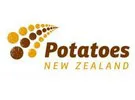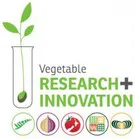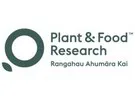Spring – is certainly a time to see new possibilities emerging and amongst all the pandemic response and recovery activity, PNZ have kept the ball rolling on 12 months of earlier work, developing the Sustainable Vegetables Project.
 A $4.7 million dollar injection of government funding through The Ministry for Primary Industries and partnering with Horticulture New Zealand and vegetable groups; Onions New Zealand, Vegetables New Zealand, Processed Vegetables New Zealand and NZ Buttercup Squash, under their umbrella of the Vegetable Research and Innovation Board, has meant the future is looking stronger for vegetable growers’ social and regulatory license.
A $4.7 million dollar injection of government funding through The Ministry for Primary Industries and partnering with Horticulture New Zealand and vegetable groups; Onions New Zealand, Vegetables New Zealand, Processed Vegetables New Zealand and NZ Buttercup Squash, under their umbrella of the Vegetable Research and Innovation Board, has meant the future is looking stronger for vegetable growers’ social and regulatory license.
 On behalf of the PNZ board, team, project partners, and levy paying growers, we want to take this opportunity to thank all involved for the first 12 months of planning to get this project to where it is today. We’re ready to kickstart a new, smarter era for vegetable growers, which will save businesses time and money, whilst providing the tools needed to meet regional regulations.
On behalf of the PNZ board, team, project partners, and levy paying growers, we want to take this opportunity to thank all involved for the first 12 months of planning to get this project to where it is today. We’re ready to kickstart a new, smarter era for vegetable growers, which will save businesses time and money, whilst providing the tools needed to meet regional regulations.
Government invests $4.7 million to boost vegetable growers’ efforts for freshwater health.
 Sustainable Vegetable Systems is a four-year, $7.5 million project, focused on reducing the environmental impact of intensive growing of potatoes, onions, brassicas and leafy greens.
Sustainable Vegetable Systems is a four-year, $7.5 million project, focused on reducing the environmental impact of intensive growing of potatoes, onions, brassicas and leafy greens.
It will involve research work to quantify and model nitrogen leaching, and engages vegetable growers from around New Zealand with tools to identify and implement techniques they can use.
The investment from MPI is aligned with the Productive and Sustainable Land Use package, which promotes farming and growing practices that deliver more value and improved environmental outcomes.
 The Sustainable Vegetable Systems project will have nine commercial field sites across the country in Canterbury, Hawke’s Bay, Horowhenua, Waikato and Pukekohe as well as trials at Plant & Food Research facilities in Lincoln and Hawke’s Bay.
The Sustainable Vegetable Systems project will have nine commercial field sites across the country in Canterbury, Hawke’s Bay, Horowhenua, Waikato and Pukekohe as well as trials at Plant & Food Research facilities in Lincoln and Hawke’s Bay.
Potatoes NZ Chief Executive Chris Claridge said this project will give the vegetable growing sector improved tools to estimate nitrogen losses, an area where the sector is currently underserved.
“This project will enable producers to assess which management techniques will best reduce their risk of nitrogen leaching, so they can confidently make changes in practice,” Chris Claridge said.
Having robust tools to measure their environmental impact will help growers operate more efficiently, and reduce nitrate leaching. The scientific data gathered within this programme will inform and develop decision tools that can help growers demonstrate sustainable growing practices.
David Hadfield, Chair of the VR&I Board says that the Board, and the vegetable product groups it represents, strongly advocate for science that supports vegetable growers to build on their current knowledge and improve their monitoring and management of nitrate leaching.
“This work will underpin the ability of vegetable growers to keep producing fresh healthy vegetables using the most sustainable approaches,” David Hadfield said.
Ultimately, this will ensure a more prosperous, vibrant and sustainable New Zealand for many generations to come.
And the Spring Potatoes NZ recovery activities don’t stop there.
Similarly in the PNZ Marketing arena, we continue to operate in a forward-moving, recovery direction, with a three month multi-channel media campaign, kicking off at the end of September 2020. This has come about as a result of the PNZ Consumer Research Project 2020, conducted after lockdown and looking at behaviour and attitudes to potato consumption prior to and during lockdown.
The research project used both quantitative and qualitative methods of; surveys, interviews; and digital ‘social studies’; to ascertain key insights. The media campaign strategy is informed by these key research insights and focusses on nutritional education and a celebration of New Zealand potato folklore. This campaign is aimed at enhancing the domestic value of potatoes through education and celebration.
Page 31 from PotatoesNZ's Market Research Report 2020. Full report available here.
Source: Potatoes New Zealand
